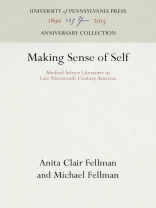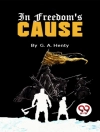Seeking the key to good living through physical well-being, the American public since at least the 1830s has devoured literature proffering medical advice. Making Sense of Self is an historical analysis of the ideological content of a broad sample of late nineteenth-century popular advice literature concerning the body and the mind. At a time when the middle class was threatened with tumultuous social and economic change, such publications offered blueprints for self-regulation, teaching survival and discipline, and bringing some sense of order and hope for self-improvement.
Anita and Michael Fellman analyze this literature as a signpost to the general aspirations, anxieties, debates, and assumptions of late Victorian Americans, who were less optimistic than had been their antebellum forebears about personal and social progress. In particular, the authors interpret the ideas these various advisors offered regarding bodily health, the workings of brain and mind, sexuality, and the will. Although the advice literature as a whole was diverse and even contradictory, the ethic of moderation was often stressed as the method, however limited, to obtain some sense of discipline and control, and the will was frequently asserted as the means to a more dynamic self-expression.
The sense of fragility, search for security, and dependence on individual self-governance revealed in this literature remain as persistent elements in the middle-class American character. The significance of this popular ideology lies not in whether it led to specific behavior, but in how it enabled people to interpret themselves and their situation to themselves during a period in which many basic ideological issues appeared more confused than certain. Making Sense of Self offers a close examination of a period analogous to our own times.
A propos de l’auteur
Anita Fellman is Professor Emerita of History at Old Dominion University. Michael Fellman is Professor Emeritus of History at Simon Fraser University.












